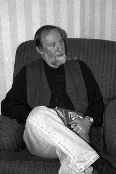Spring/Summer 2007, Volume 23.3
Poetry

Stephen Dunn
Stephen Dunn was born in New York City in 1939. He earned a B.A. in History and English from Hofstra University in 1962, where he was a key player on the basketball team that went 25-1. He attended the New School Writing Workshops and finished his M.A. in creative writing at Syracuse University in 1970. He has been, briefly, a semi- professional basketball player, a copywriter, and an editor, but has spent most of his professional life as a professor of literature and creative writing. He divides his time between Frostburg, Maryland, and Pomona, New Jersey, where he has been Distinguished Professor of Creative Writing at Richard Stockton College.
Dunn won the 2001 Pulitzer Prize for his book Different Hours, and his newest collection of poetry, Everything Else in the World, was published in 2006. Previous collections include The Insistence of Beauty, Loosestrife (National Book Critics Circle finalist, 1996), New and Selected Poems 1974-1994, Landscape at the End of the Century, Local Visitations, and Between Angels. He is also the author of Riffs and Reciprocities: Prose Pairs, and Walking Light: Essays and Memoirs. In 1995, he received an Academy Award in Literature from the Academy of Arts and Letters. Among his other awards are the Levinson Award from Poetry magazine and fellowships from the National Endowment for the Arts and the Guggenheim Foundation.
Read a conversation with Stephen Dunn published in this issue of Weber Studies.
The Routine Things Around the House
When Mother died
I thought: now I’ll have a death poem.
That was unforgivable.
Yet I’ve since forgiven myself
as sons are able to do
who’ve been loved by their mothers.
I stared into the coffin
knowing how long she’d live,
how many lifetimes there are
in the sweet revisions of memory.
It’s hard to know exactly
how we ease ourselves back from sadness,
but I remembered when I was twelve,
1951, before the world
unbuttoned its blouse.
I had asked my mother (I was trembling)
if I could see her breasts
and she took me into her room
without embarrassment or coyness
and I stared at them,
afraid to ask for more.
Now, years later, someone tells me
Cancers who’ve never had mother love
are doomed and I, a Cancer,
feel blessed again. What luck
to have had a mother
who showed me her breasts
when girls my age were developing
their separate countries,
what luck
she didn’t doom me
with too much or too little.
Had I asked to touch,
perhaps to suck them,
what would she have done?
Mother, dead woman
who I think permits me
to love women easily,
this poem
is dedicated to where
we stopped, to the incompleteness
that was sufficient
and to how you buttoned up,
began doing the routine things
around the house.
[from New & Selected Poems: 1974-1994 (W. W. Norton)]
At the Smithville Methodist Church
It was supposed to be Arts & Crafts for a week,
but when she came home
with the "Jesus Saves" button, we knew what art
was up, what ancient craft.
She liked her little friends. She liked the songs
they sang when they weren’t
twisting and folding paper into dolls.
What could be so bad?
Jesus had been a good man, and putting faith
in good men was what
we had to do to stay this side of cynicism,
that other sadness.
OK, we said, One week. But when she came home
singing "Jesus loves me,
the Bible tells me so," it was time to talk.
Could we say Jesus
doesn’t love you? Could I tell her the Bible
is a great book certain people use
to make you feel bad? We sent her back
without a word.
It had been so long since we believed, so long
since we needed Jesus
as our nemesis and friend, that we thought he was
sufficiently dead,
that our children would think of him like Lincoln
or Thomas Jefferson.
Soon it became clear to us: you can’t teach disbelief
to a child,
only wonderful stories, and we hadn’t a story
nearly as good.
On parents’ night there were the Arts & Crafts
all spread out
like appetizers. Then we took our seats
in the church
and the children sang a song about the Ark,
and Hallelujah
and one in which they had to jump up and down
for Jesus.
I can’t remember ever feeling so uncertain
about what’s comic, what’s serious.
Evolution is magical but devoid of heroes.
You can’t say to your child
"Evolution loves you." The story stinks
of extinction and nothing
exciting happens for centuries. I didn’t have
a wonderful story for my child
and she was beaming. All the way home in the car
she sang songs,
occasionally standing up for Jesus.
There was nothing to do
but drive, ride it out, sing along
in silence.
[from New & Selected Poems: 1974-1994 (W. W. Norton)]
